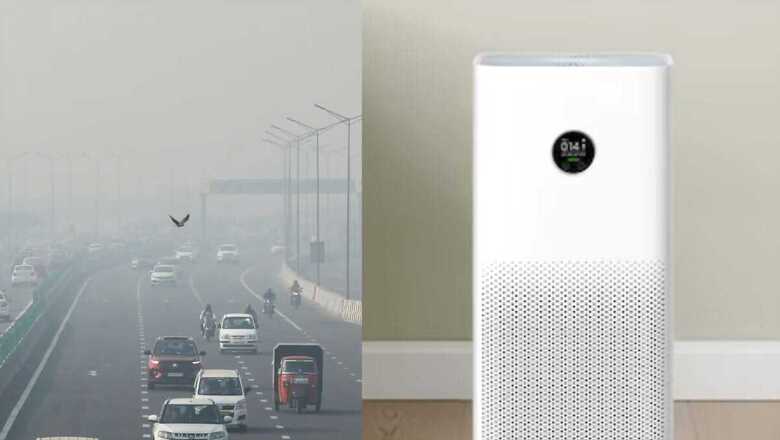
views
Every year, North India, particularly the NCR and nearby regions, faces an annual winter onslaught of thick smog due to factors like stubble burning, vehicle emissions, and industrial pollution. Year after year, Delhiites and residents of areas like Noida, Gurugram, and Haryana are accustomed to experiencing intense pollution that begins as early as October.
What’s particularly concerning is the harmful nature of this smog; it obstructs sunlight, contains various pollutants such as PM2.5, falling into the most harmful pollutants category—organic matter, metals, and combustion byproducts—that can deeply infiltrate your lungs. This takes the Air Quality Index (AQI) to ‘severe’ levels. Additionally, coupled with other pollutant categories such as PM10 and PM1, this creates for a difficult time for residents of these areas.
In fact, currently in Delhi, the situation’s severity has prompted the closure of primary and high schools in Delhi—extending the shutdown until November 10
This is where air purifiers come into play. A few years ago, air purifiers were considered a luxury or niche product, but now they are slowly getting more popular, yet remain one of the less sought-after home appliances. The question remains: how they work, are they effective, and can purchasing one resolve these pollution-related issues? We aim to address these queries here.
Delhi Pollution: How Do Air Purifiers Work?
Firstly, it’s important to understand that air purifiers are not miraculous devices; they need consistent usage to exhibit results and contribute to a healthier lifestyle. Using an air purifier for just an hour a day won’t suffice. If you’re present in a room, the air purifier should be active.
Different air purifiers from various brands use different filtration processes—some are more sophisticated while others offer basic functions at a lower cost. The process is generally simple: a fan draws in air from the surroundings, passes it through a series of filters to capture pollutants, and then circulates the purified air back into the room.
The purification abilities of an air purifier vary based on the number and type of filters it employs. Some may only target PM10 particles, while others can filter smaller PM2.5 particles. Additionally, some purifiers offer features such as UV cleansing that can eliminate bacteria and mould.
Air Purifiers: Are They Effective?
In short, yes, air purifiers are quite effective at preventing you from breathing harmful pollutants and reducing the amount of dust in your surroundings. Consequently, individuals with allergies may experience reduced symptoms in their day-to-day encounters. Furthermore, air purifiers can assist pet owners in managing pet fur—particularly from cats and dogs.
However, to maximize the effectiveness of an air purifier, it’s beneficial to complement it with indoor plants, proper ventilation, and a clean environment where you’re not introducing pollutants through your indoor activities.
Contrary to popular belief, switching off an air purifier after a few hours of usage won’t suffice. If your room consistently receives new air through openings like doors and windows, it’s essential to recognize that this new air might carry pollutants. Consequently, turning off the air purifier would allow these pollutants to re-enter the room. To maintain optimal air quality in your immediate surroundings, it’s crucial to keep the purifier running most of the time.
Moreover, it’s vital to consider the area size an air purifier can effectively clean. If your purifier is rated for 500 square feet, it won’t be efficient in a 1000-square-foot area. Hence, purchase air purifiers based on the area they can cover, and consider using multiple purifiers for different rooms that are far apart and isolated from one another.




















Comments
0 comment